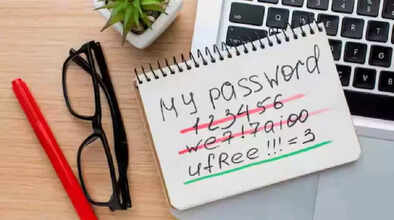How do passwords get leaked? Know how hackers destroy your online security.

In today's digital age, most of our personal and professional data is stored online. We use passwords to access everything from banking to social media, and email to shopping accounts.
Password Leak: In today's digital age, most of our personal and professional data is stored online. We use passwords to access everything from banking to social media, and email to shopping accounts. But when these passwords get leaked, a big danger arises. Hackers steal these passwords in many clever ways and can then misuse them. Let's understand how passwords get leaked and how hackers make you their victim.
Phishing
Phishing is the most common method in which hackers steal the login details of the user through fake emails, websites or messages. For example, you may receive an email that looks exactly like your bank or social media site and is tempted to reset or verify your password. As soon as you click on that link and enter the password, it reaches the hackers.
Data Breach
Many times hackers steal the information of millions of users by attacking the servers of big companies. It contains sensitive information like email, username and password. If you have also created an account on a website that has been breached, then your password may also be leaked.
Keylogger
This is a type of malware that records every information typed on your keyboard. Whenever you enter a password on a website, the keylogger steals it and sends it to the hacker. These usually come to your device through spam links, infected websites or third-party software.
Brute Force Attack
In this method, the hacker tries every possible combination to guess the password. Easy and common passwords (like 123456 or password123) are easily cracked in a brute force attack. That's why it's important to have a strong password.
The trap of public Wi-Fi
When you use public Wi-Fi, such as at a cafe, mall or airport, the data transferred from your device becomes easy for hackers to capture. If you enter the password on such a network, it can be easily stolen.
How to keep yourself safe?
Use strong and unique passwords.
Keep two-factor authentication (2FA) on.
Avoid clicking on any suspicious email or link.
Do not log in on public Wi-Fi.
Make sure to keep antivirus and security software on your device.

